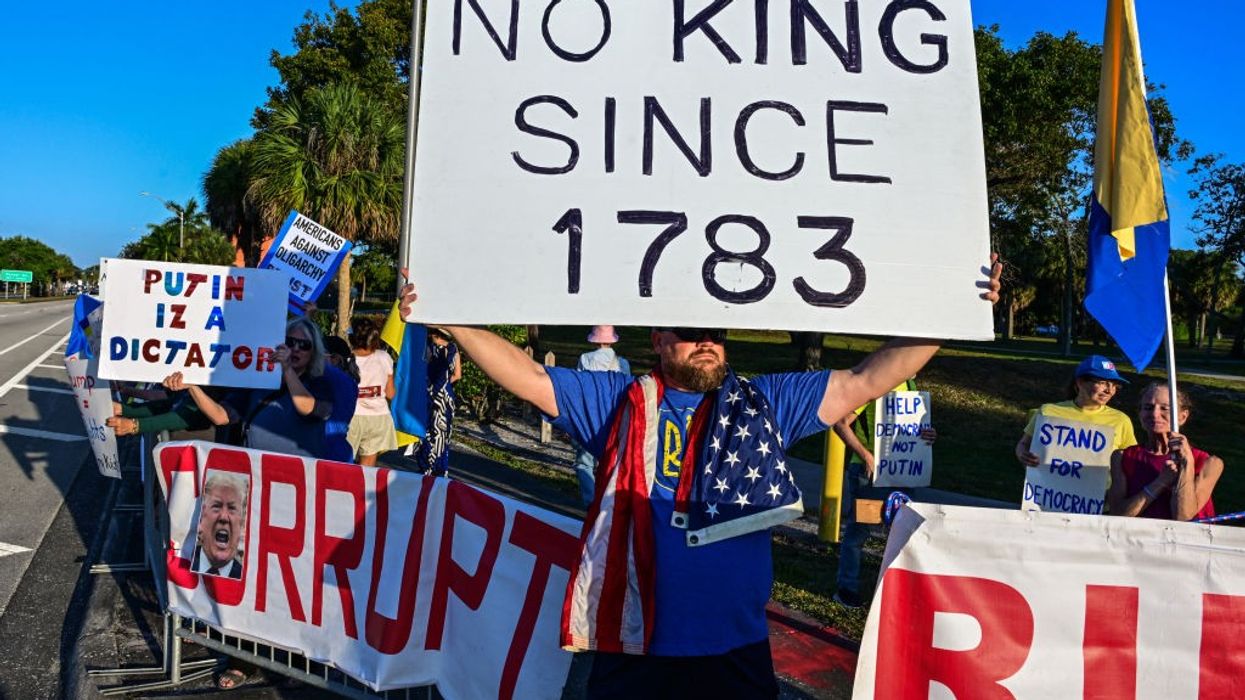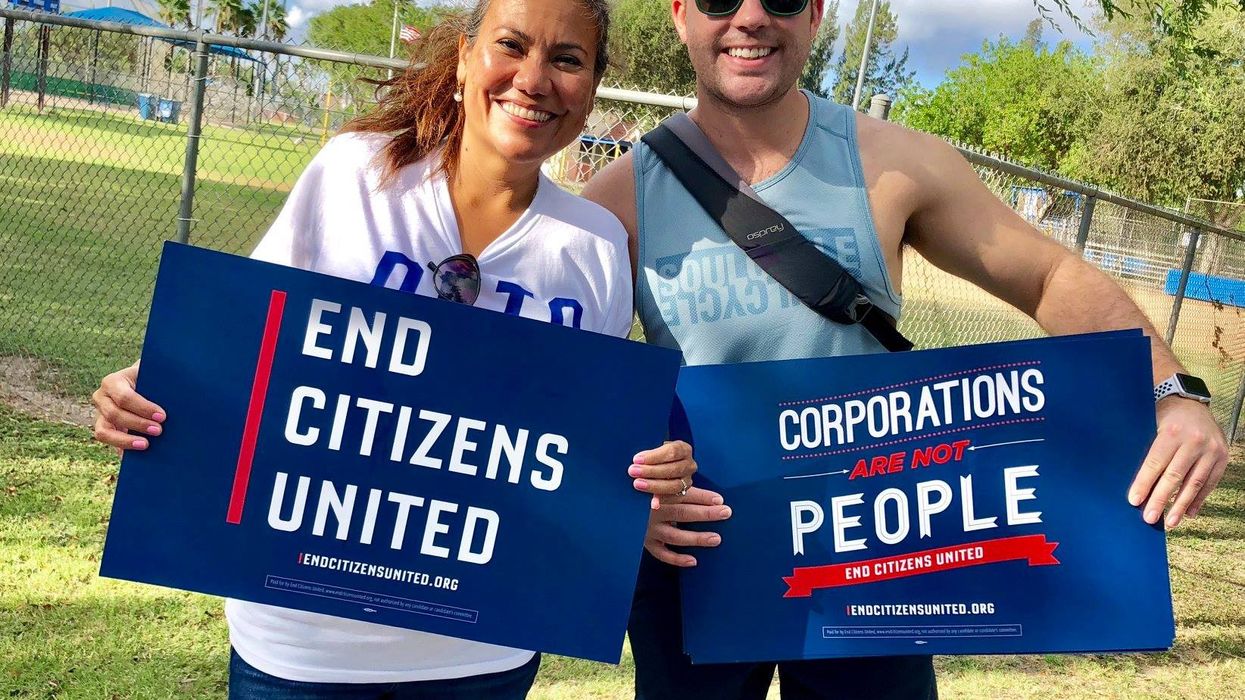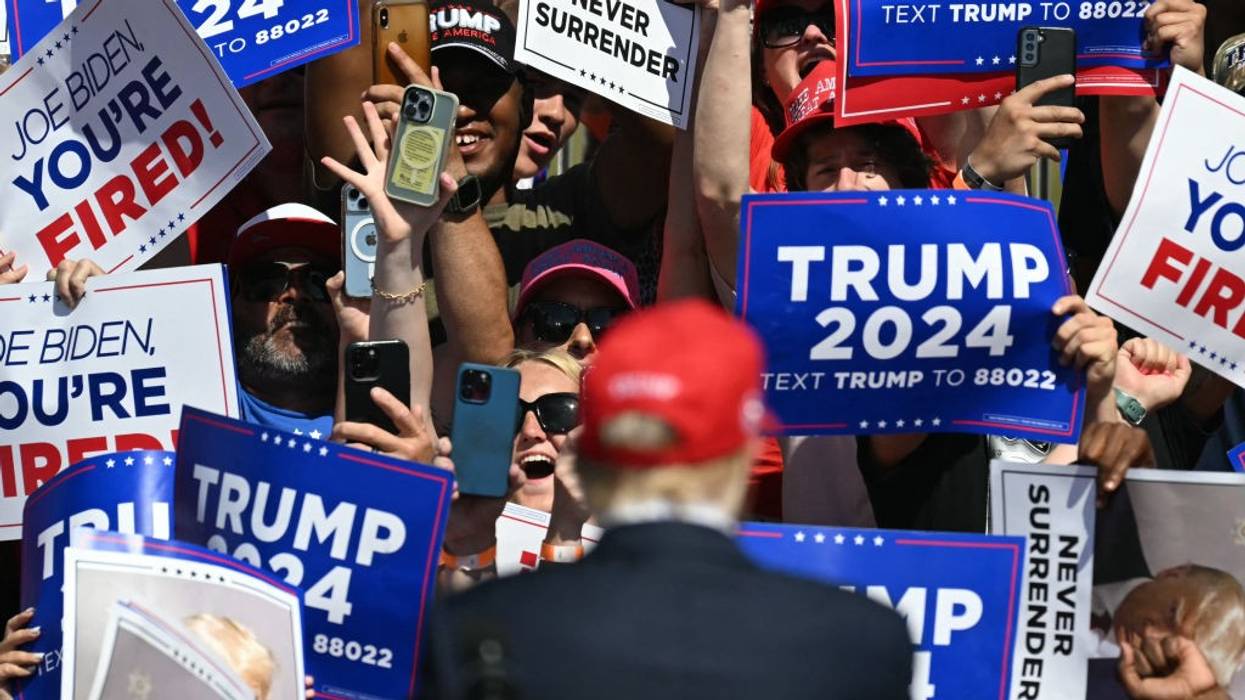No Kings, No Corporations: Rejecting Authoritarian and Corporate Rule
As we protest authoritarianism this Saturday—and legitimately condemn the many anti-democratic and unjust actions of Trump—let us also remember the tyranny of our corporate overlords who have been—perhaps more quietly but not less aggressively—eroding our democracy.
The “No Kings Day” mass rallies and marches this Saturday across the country will be, hopefully, a political and cultural affirmation of the democratic vision that we should be a self-governing people, a vision that has never been fully realized. The events must not only reject the reemergence and expansion of authoritarianism of Trump from his previous administration. They should also acknowledge the much longer tyranny and authoritarianism of corporate rule.
Speeches, signs, chants, and petitions will undoubtedly address the numerous authoritarian actions by the Trump administration since the election. These include pardons and immunities for loyalists, the use of federal agencies against political opponents, use of disinformation and threats against elected officials, mass deportations and family separation, executive orders that trump local and state governments, government loyalty purges, crackdown on the media and dissent, and militarized response to protests – such as the overreacting deployment of the Marines in response to the largely peaceful protests against ICE immigration raids in Los Angeles.
As we protest authoritarianism this Saturday—and legitimately condemn the many anti-democratic and unjust actions of Trump—let us also remember that tyranny has many symbols. One is a red hat. The other is a corporate logo.
The No Kings Day actions are just the latest and important public resistance to Trump’s tyrannical actions that have included other nationwide demonstrations and civil disobedience, legal challenges, whistleblowers and leaks, mutual aid, sanctuary networks, state and local government pushback, worker and union actions, and campus resistance.
Yet the reality is that Trump and his Project 2025 playbook represent one form of authoritarianism that, while distinct in some respects, intersects with another deeply entrenched form: corporate domination.
Unlike Trump’s style of blatant and unapologetic brute force, intimidation, and open defiance of the rule of law, corporate rule has been a slow, legalistic, never ending, and largely invisible seizure of power — not by individuals, but by artificial legal entities with little public accountability.
Corporations today define nearly every aspect of our lives:
- Our values: Consumerism and its emphasis on profit-first “logic” and primacy of property protection over human rights and the rights to a livable world.
- Our labor: Work hours, wages, and benefits are dictated by corporate interests.
- Our environment: Corporations control production, pollution, extraction, and destruction.
- Our food system: From seeds to supermarkets, agriculture is consolidated and chemically dependent.
- Our technology and data: AI, surveillance, and algorithms are driven by profit and privatization.
- Our politics: Elections, legislation, and regulation are shaped by lobbying and campaign contributions.
- Our culture and information: Entertainment, education, and news are filtered through corporate lenses.
How did this happen? The sword and shield of corporate rule is the U.S. Constitution. Despite corporate entities being originally created and defined by the government as a public tool to provide goods and services, the Supreme Court declared them to be private institutions, out of bounds to public definition and control. What had originally been the state providing mere “privileges” via the granting of charters or licences that could be withdrawn via the revoking of charters that violated the law became constitutional rights deemed beyond the reach of legislatures or individuals.
The Supremes have anointed corporations the constitutional rights of natural persons for more that a century, including:
- First Amendment rights — to spend unlimited money on elections (Citizens United v. FEC being the latest decision), to not to speak, to lie, and even to some extent religious rights
- Fourth Amendment rights — to block health, safety, and environmental inspections.
- Fifth Amendment takings rights — to challenge local and state regulations under the Takings Clause that affect profit.
- Fourteenth Amendment equal protection — to avoid differential treatment in the law, even when such laws protect local businesses and communities over chain stores and other businesses.
Corporate “personhood” is an absurdity, yet humanly, environmentally, and democratically lethal.
While there have been frequent mass actions over single corporate abuses, we don’t see mass protests in the streets about the totality of corporate rule. Why does corporate tyranny go unchallenged?
Corporate rule has been normalized. It is:
- Cultural: So embedded that we barely notice it — from Amazon to Apple to Exxon to BlackRock. Call it the “fish discover water last” syndrome in which it's so much a part of our daily lives that it’s hardly recognized..
- Gradual: It’s happened over a century, one Court decision at a time, which is challenging to understand given the legal complexity and, of course, rarely covered by the corporate press.
- Justified: We’re told corporations bring jobs, innovation, and prosperity — even as economic inequality soars and corporate entities are increasinbly able to shift capital where and when they want to other states or nations.
- Powerful: We’re told that the economic and political power of mega-corporations is inevitable and irreversible – so public focus should remain on elections, statutes, and regulations that merely manage corporate harms and impose minimal guardrails, keeping us perpetually on the defensive, opposing one corporate abuse or company at a time while censoring ourselves from demanding structural change.
- Feared: To criticize corporations is to risk being labeled “anti-American,” a “socialist,” a “Luddite” or worse.
Move to Amend exists to expose and abolish corporate constitutional rights and the doctrine of money as speech through the We the People Amendment (HJR54). This is not about regulating corporations better. It’s about breaking the illegitimate foundation of their power and declaring that we should have the power and right to define corporate actions.
As we protest authoritarianism this Saturday—and legitimately condemn the many anti-democratic and unjust actions of Trump—let us also remember that tyranny has many symbols. One is a red hat. The other is a corporate logo.
So let us all turn out on No Kings Day not only to oppose authoritarian rule, but also as an opportunity to oppose corporate rule, which will remain long after Trump is gone.

